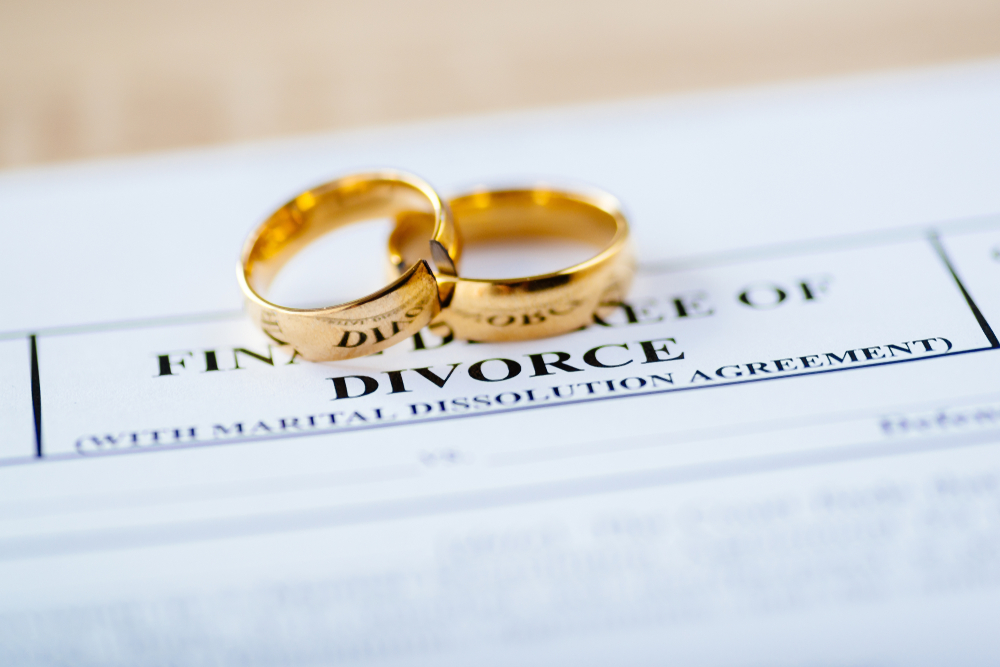When you and your spouse decide to divorce, you’ll have to calculate and evenly divide your assets. The most common assets included in a divorce are homes, vehicles, retirement funds, and savings accounts. Some couples may have unique assets that are harder to place ownership and evenly divide, including funds awarded through a personal injury lawsuit.
Considering the Timing of the Divorce
Whether personal injury awards are included depends on where you and your spouse are at in the divorce process. For example, if you have yet to file, and have already collected the funds, it’s possible for the compensation to be included as marital property. However, if you already initiated the divorce process, and then received compensation, any funds you collect should be separate from marital property.
General Rule
As a general rule, compensation from a personal injury lawsuit is not typically included as marital property. This is because the funds are paid to recover damages of the individual, not the couple.
Examples of Marital property
A few examples of funds that may be marital property include:
- Property that has one or both names on the deed
- Shared bank accounts
- Shared retirement accounts
- Vehicles that both people use
Marital property is different from individual property. Individual property refers to funds that belong to one person, rather than the couple. Trust funds are an example of individual property given to one spouse.
Exemptions to Personal Injury Awards as Individual Property
While personal injury compensation is typically individual property, there are some situations in which funds given to one spouse are actually marital property. When the funds collected from a personal injury lawsuit are co-mingled in the marriage, such as to buy a house or start a business together, it’s possible that they’ll also be included in the divorce.
If there are questions as to what funds are considered individual versus marital property, they are usually handled with a hearing. The judge will review individual assets and funds to decide what should be categorized as marital property. They may consider things like the length of the marriage or who acquired what property.
What is Community Property?
Some states have community property laws, which means assets acquired during the marriage are dividable regardless of how much each person earns within the marriage. This law excludes assets acquired before the marriage. However, New Jersey is not a community property state and instead, follows a system of equitable distribution.
Equitable distribution is different from equal distribution, in that dividing assets in a marriage is not always 50/50. The focus of equitable distribution in New Jersey is on fairness, not an equal balance.
Questions About Dividing Assets?
If you’re planning on or currently going through a divorce, it’s likely that you have a lot of questions related to the equitable distribution of assets. Dividing assets can be one of the most difficult parts of a divorce, so having a divorce lawyer on your side that can protect your best interests is helpful.
Contact a Voorhees Family Law Attorney for a Consultation About Divorce in New Jersey Today
If you are thinking about filing for divorce, or if you have already started the divorce process and are dealing with another matter such as child custody, child support, or division of assets, you need to speak with a qualified attorney. The New Jersey family law attorneys at the Law Offices of Daniel K. Newman represent clients throughout the state, including Voorhees, Marlton, Medford, and Cherry Hill. We understand how challenging this time can be for you, which is why we will fight hard to protect your interests, and the interests of your loved ones, throughout the legal process. Call us at (856) 309-9007 or fill out our confidential contact form to schedule a consultation. We have an office conveniently located at 1202 Laurel Oak Rd #207 Voorhees Township, NJ 08043.
The articles on this blog are for informative purposes only and are no substitute for legal advice or an attorney-client relationship. If you are seeking legal advice, please contact our law firm directly.

